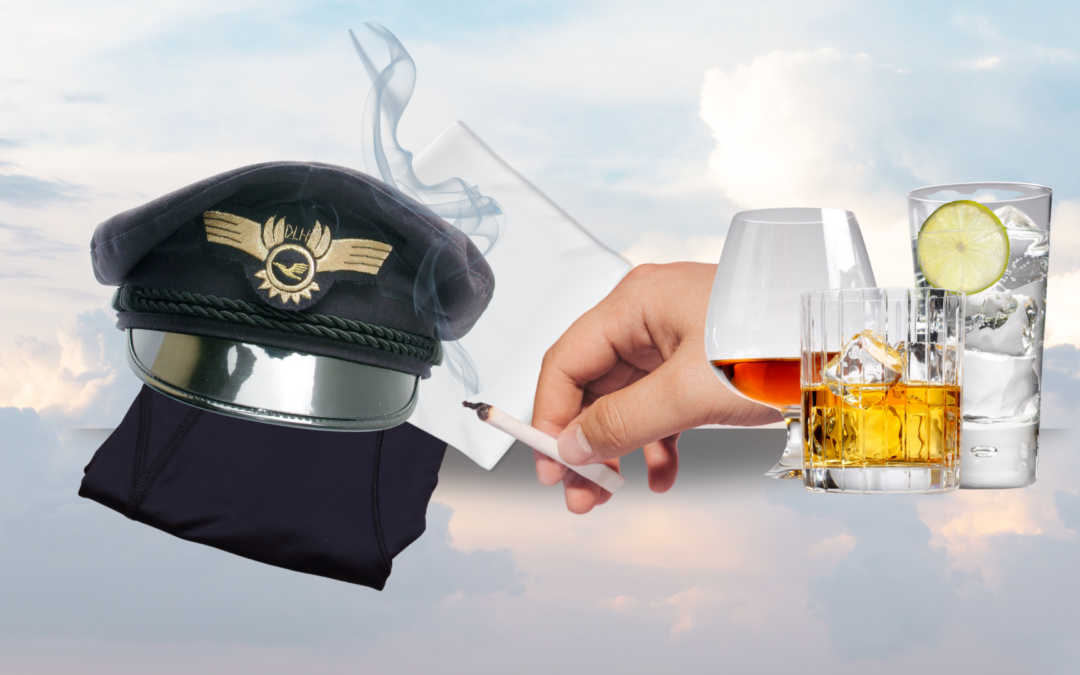The Code of Federal Regulations, Formerly known as FAR’s, section § 61.15 specifically deals with offenses involving alcohol or drugs. A conviction for the violation of any Federal or State statute relating to the growing, processing, manufacture, sale, disposition, possession, transportation, or importation of narcotic drugs, marijuana, or depressant or stimulant drugs or substances is grounds for the denial of an application for any certificate, rating, or authorization for a period of up to 1 year after the date of final conviction or a suspension of your ratings.
Furthermore, §67.305 lists the mental standards for medical certification. Specifically, mental standards for a third-class airman medical certificate are:
No established medical history or clinical diagnosis of substance dependence. Furthermore, there can be no substance abuse within the preceding 2 years.
“Substance” includes: alcohol, sedatives, hypnotics, and central nervous system stimulants (e.g. cocaine, amphetamines, hallucinogens, cannabis, etc)
(ii) “Substance dependence” means a condition in which a person is dependent on a substance, other than tobacco or ordinary xanthine-containing (e.g., caffeine) beverages. To determine “dependence” the FAA Medical Surgeon looks for symptoms of Increased tolerance; withdrawal symptoms; Impaired control of use and/or Continued use despite damage to physical health or impairment of social, personal, or occupational functioning.
A verified positive drug test result, an alcohol test result of 0.04 or greater alcohol concentration, or a refusal to submit to a drug or alcohol test required by the U.S. Department of Transportation or an agency of the U.S. Department of Transportation can can be determined to be “Substance Abuse”, thus creating eligibility for a medical certification denial.
Lastly, the Federal Air Surgeon has discretion to determine misuse of a substance, based on case history and appropriate, qualified medical judgment relating to the substance involved, if he finds that a person is unable to safely perform the duties or exercise the privileges of the airman certificate or may reasonably be expected, for the maximum duration of the airman medical certificate applied for or held, to make the person unable to perform those duties or exercise those privileges.
There has been more than one occasion where the Federal Air Surgeon has revoked or denied a pilots privilege to fly based on a criminal history stemming from multiple charges of driving under the influence (DUI) or driving while intoxicated (DWI). Furthermore, any pattern of drug use based on criminal charges stemming from drug possession, abuse or trafficking can also result in a denial or revocation of an airman medical license. If you have had your medical license revoked, suspended or denied, or if you are a pilot that has been arrested for drunk driving, you need the assistance of a competent trial attorney with experience in aviation law to ensure your rights are protected. Call the aviation lawyer at The Trial Lab TODAY! DO NOT WAIT! Call 562-452-9522 or email [email protected]

